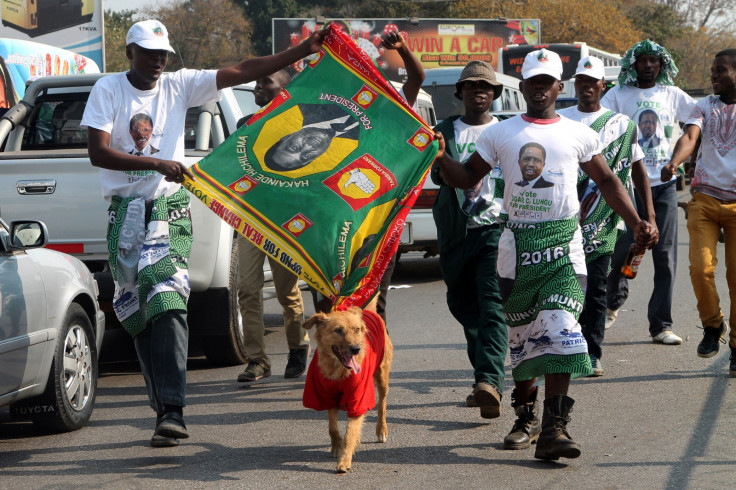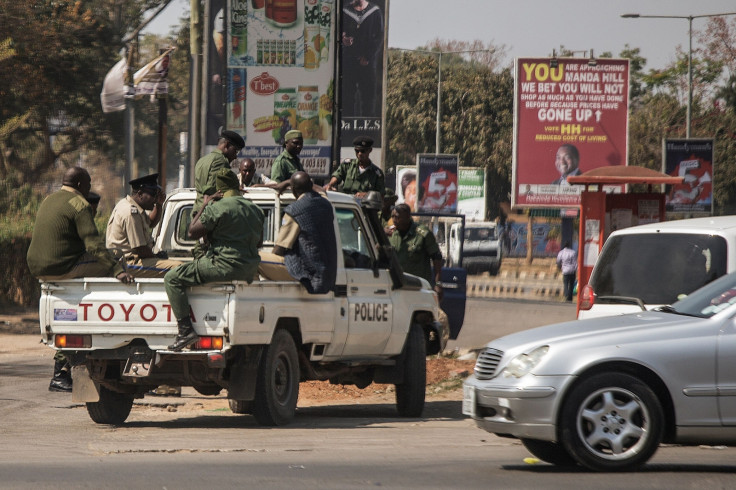Does Zambia's closure of three private media houses represent a further attack on press freedom?
State suspends licences for independent TV and radio stations Muvi TV, Komboni Radio and Itezhi Tezhi Radio.

Zambia's government has tightened its control over the media after the state broadcasting authority suspended broadcasting licences for three independent media houses, Muvi TV, Komboni Radio and Itezhi Tezhi Radio.
The Independent Broadcasting Authority claimed that the three private broadcasters had posed a risk to peace and stability during this month's presidential election in which President Edgar Lungu of the Patriotic Front (PF) was declared winner.
The 11 August poll was the most closely fought and polarised election witnessed in the landlocked country since it adopted a multiparty system in 1990. The opposition United Party for National Development party of Hakainde Hichilema, meanwhile, filed a court application challenging the outcome of the poll, claiming there were voting irregularities.
Amid the post-election tension in the country, armed police stormed the Muvi TV offices and forced the station off-air on 22 August.
Suspension 'not politically motivated'
According to a statement from IBA Chairman Brigadier Justin Mutale, the broadcasters had shown unprofessional conduct before, during and after the elections – a behaviour Mutale said contravened with provisions of the IBA Act. Under the Section 29 (1) (ii) of the IBA Amendment Act of 2010, the board may cancel broadcasting licence if the cancellation is necessary in the interest of "peace and security, welfare or good order".
"It has therefore become necessary to suspend the licences of the three stations in public interest," Mutale stated. While the regulator gave no further details, it said the stations have 30 days in which to appeal the decision.
#Zambia's state broadcasting Authority shut down leading private TV & two radio stations adding to @PostNewsZambia pic.twitter.com/1AHzZbnRGk
— John Chola (@cholajohn) August 22, 2016
The authority's director general Josephine Mapoma, meanwhile, said the closures were "not politically motivated". "We don't know whether these media houses are against PF or not, but the decision has been made by board of directors at IBA."
Previous threats to right to freedom of expression
The broadcasters' suspension comes just months after the Zambian authorities shut down The Post, the nation's largest independent newspaper.
While the Zambia Revenue Authority stated the shut down was linked to unpaid taxes, managing editor Joseph Mwenda was quoted by AFP as saying the move to close the newspaper was aimed at silencing the press ahead of elections.
HAPPENING NOW: Police fire teargas at peaceful Post employees selling copies of today's edition along Bwinjimfumu Rd.
— The Post News Zambia (@PostNewsZambia) June 22, 2016
"It's clear that they want us shut down ahead of the elections," he said.
At the time, human-rights watchdog Amnesty International alleged the closure aimed to impede critical voices in the country. The organisation's director of southern Africa, Deprose Muchena, stated that shutting down the newspaper "threatens the right to freedom of expression".
Rights group Transparency International Zambia, meanwhile, blamed "public media" (state-owned media) of "discriminating against opposition political parties taking part in the elections".
According to Human Rights Watch, the respect of human rights has been "steadily declin(ing) in Zambia since the PF government came into power in 2011".
"Opposition parties are being targeted with politically motivated prosecutions. Government officials also incite hatred against LGBTI people, leading to increased arrests and prosecutions," the organisation said in a 2014 report.

© Copyright IBTimes 2025. All rights reserved.






















